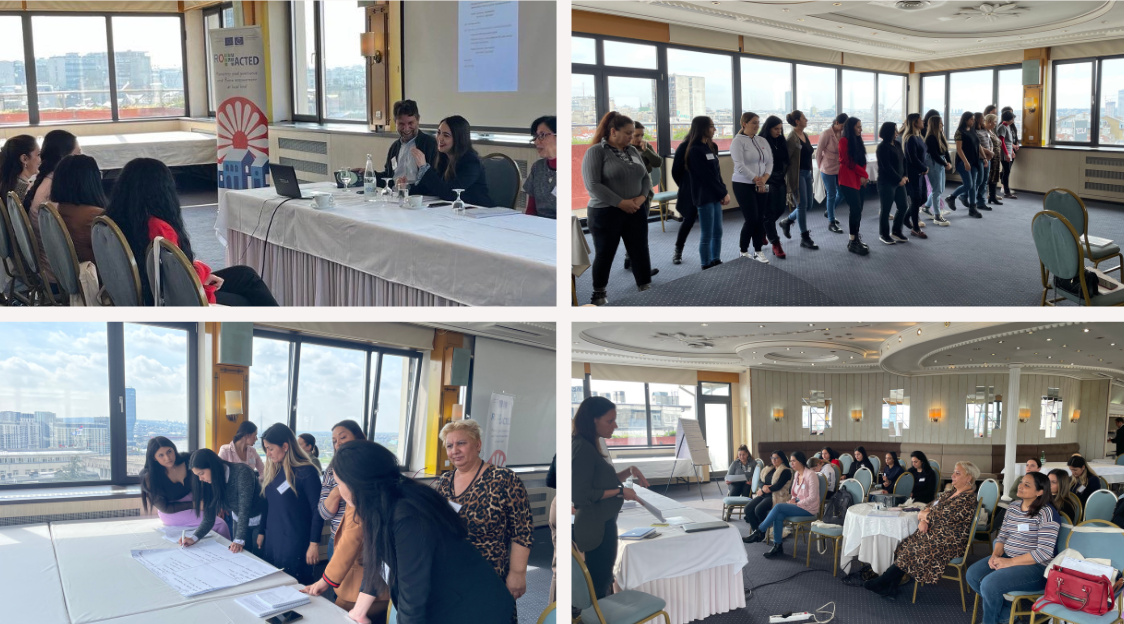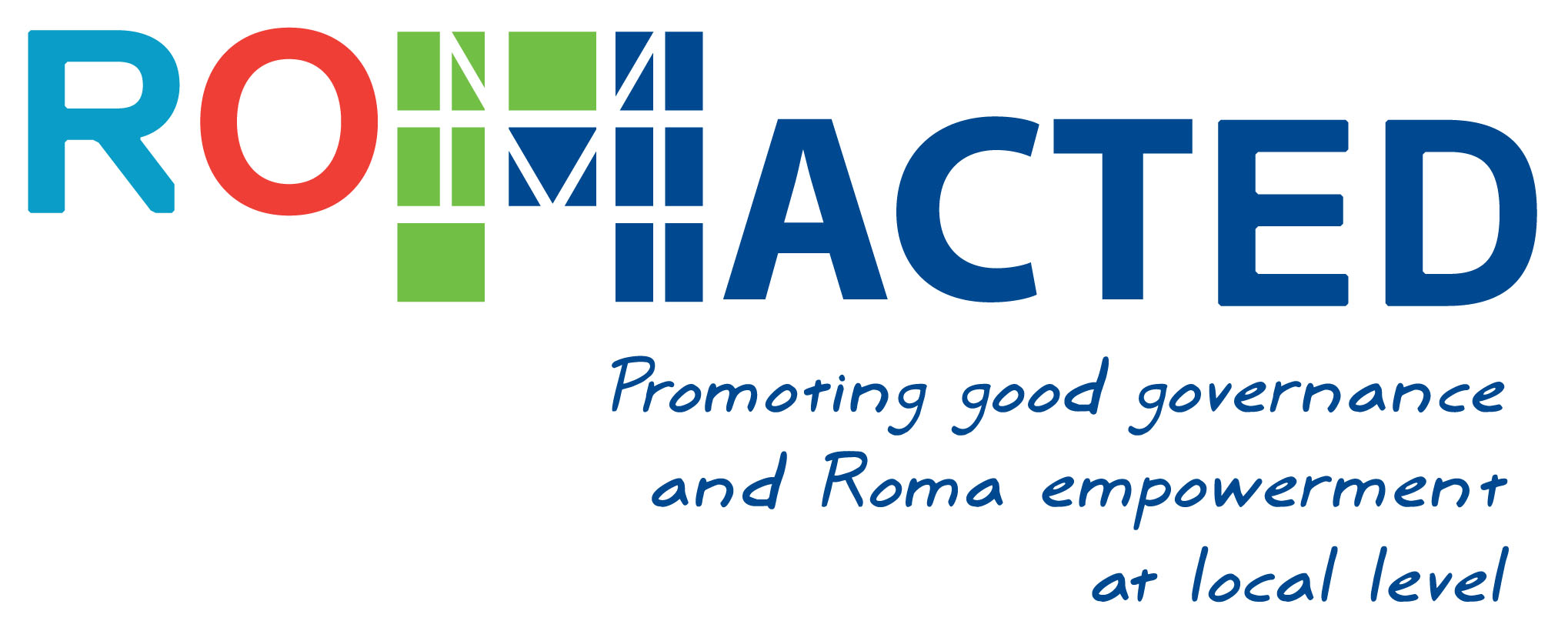Within the framework of co-operation on the topic of Roma returnees, the World Bank organised a Training of Trainers on ‘Transformative grassroots leadership and economic empowerment of Roma women/returnees’ in close co-ordination with the EU-CoE ROMACTED Phase II Programme. The training scheme was developed and implemented by the Ethnographic Institute, in accordance with the manual to support the development of transformative leadership mindsets and competencies of grassroots leadership institutions to advance women’s socio-economic space. Its objective was to develop the awareness, knowledge, skills, and commitment to act and advocate for more equitable, inclusive, and peaceful communities.
The training scheme was divided into two sets: 1) three pilot training were organised in Bac, Kostolac and Pirot in the first trimester of 2023, to allow inputs for adjustments to the manual; 2) Training of Trainers (ToT) in Belgrade for Romani women from the ROMACTED partner cities/ municipalities. These sessions aimed to strengthen community institutions in their ability to promote the rights of women with an explicit focus on Roma women as well as Roma women returnees. This training targeted Community Action Group members and ROMACTED facilitators, who took an active role in each set of the training scheme. The final ToT enhanced the skills and understanding of transformative local processes among 20 Roma women of different age-range.
While this training aimed at empowering community organisations to support the inclusion of all marginalised groups, the core base of the manual focuses on the inclusion of (Roma and returnee) women, who are among the most marginalised in Serbia. Sustainable development is not possible without the participation of half the population and the leadership of women, and existing and deepening gender inequality and exclusion continue to pose major threats to social stability and resilience. Therefore, although the barriers are high, the costs of inaction are even higher, and investing in women and women leaders through gender-intentional strategies that deliberately address barriers and recognise their rights and capabilities is key to a just and sustainable world.


